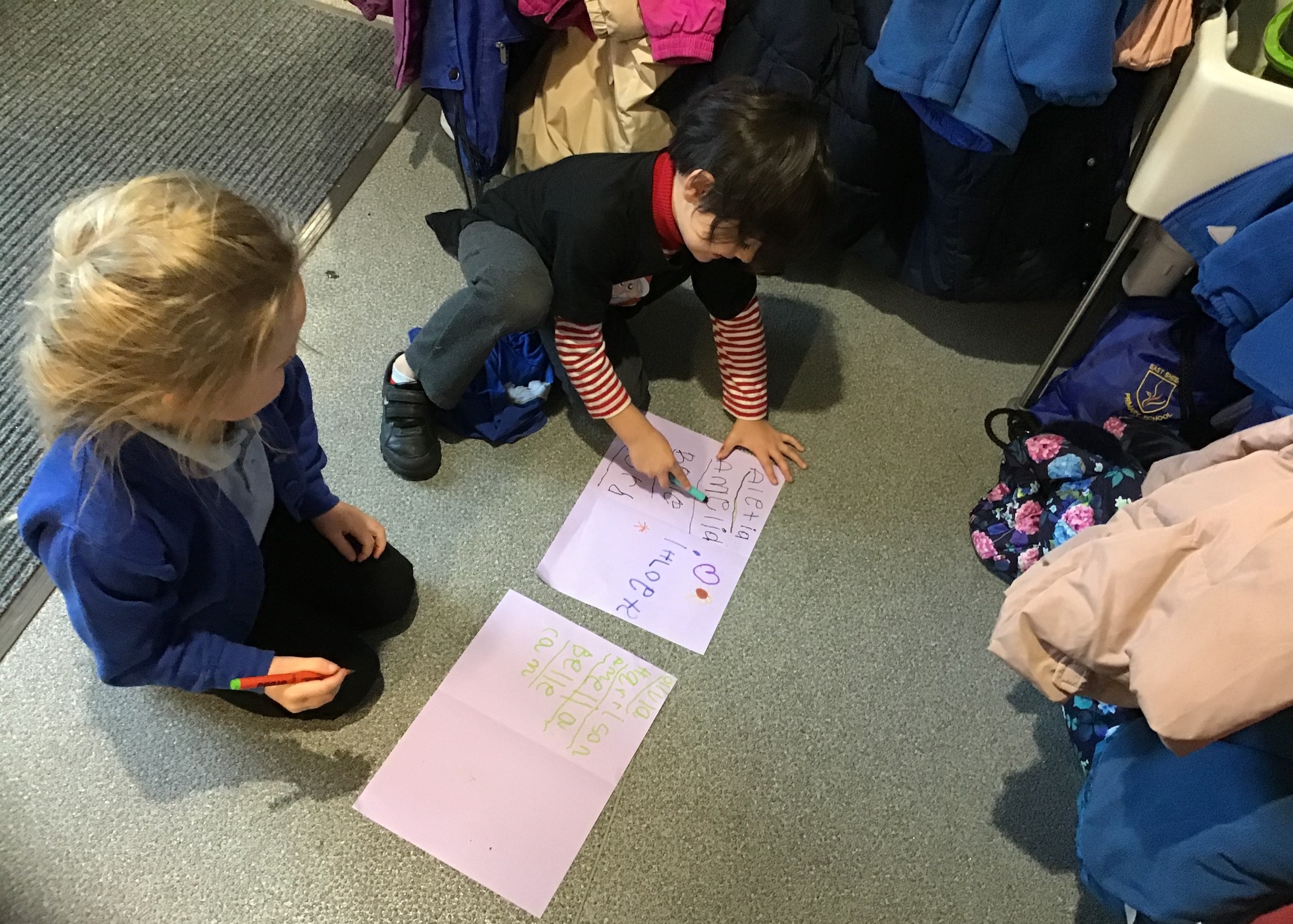
English
Subject Vision
At East Sheen Primary School, we follow The National Curriculum to promote high standards of language and literacy by equipping pupils with a strong command of the spoken and written word and to develop a love of literature through widespread reading for enjoyment.
Children have many opportunities to articulate their thinking, express viewpoints, act out stories and recite poetry and rhymes from memory. High quality texts are selected to share with the children and stimulate discussion and critical thinking and are used to inspire the children's own writing development.
The National Curriculum for English aims to ensure that all pupils:
- read easily, fluently and with good understanding
- develop the habit of reading widely and often, for both pleasure and information
- acquire a wide vocabulary, an understanding of grammar and knowledge of linguistic conventions for reading, writing and spoken language
- appreciate our rich and varied literary heritage
- write clearly, accurately and coherently, adapting their language and style in and for a range of contexts, purposes and audiences
- use discussion in order to learn; they should be able to elaborate and explain clearly their understanding and ideas
- are competent in the arts of speaking and listening, making formal presentations, demonstrating to others and participating in debate.
Implementation
At East Sheen Primary School, we use a variety of teaching and learning styles in English lessons to meet the individual needs of all children. Children work in mixed ability groups and are encouraged to talk ideas through, share and develop them, plan, write, assess and make improvements. A wide range of supporting materials are provided to enable children to work independently, and children use their ‘Thinking Maps’ and ‘Habits of Mind’ throughout the school to develop their ability to plan, analyse and evaluate their own and others’ writing.
We have always used drama and opportunities for public speaking to enhance children's abilities to express themselves and this continues to be a priority at our school. All children take part in termly class assemblies and there are regular performances and presentations by children to their peers in class, to parents and to governors.
Children are encouraged to develop their understanding of reading from early phonics skills to higher order reasoning, where they can make inferences and understand the impact of author intent. Attractive reading areas, shared reviews and provision of book lists are amongst some of the strategies used to promote enjoyment and a love of reading. Please see our separate 'Early Reading & Phonics' and ‘Reading Beyond Phonics’ tabs for more information about phonics and reading at East Sheen Primary School.
Spelling, Punctuation and Grammar are taught throughout the school - as outlined in appendices 1 and 2 of The National Curriculum - and in discrete lessons in KS2 and is embedded into daily teaching. Children also have access to an online spelling programme, Spelling Shed.
There are children of differing ability in all classes at East Sheen Primary School. We recognise this fact and provide suitable learning opportunities for all children by matching the challenge of the task to the ability of the child. We use additional teachers, HLTAs and classroom assistants to support some children and to enable work to be matched to the needs of individuals.
For further information see the attached programme of study for English at the foot of this page.
Impact
At East Sheen Primary School, we believe that exposure to high quality texts leads to the best results in terms of children’s love and understanding of English. We provide children with real-world experiences and contexts, about which they base writing, or we expose children to high quality texts so that their writing is purposeful and is written in a context that all children can access. This ensures children have the necessary tools for writing for a range of purposes.
We explore and analyse texts to develop all strands of reading comprehension and use modelling, shared writing and ‘Thinking Map’ strategies to plan, edit and improve writing. We compose shared success criteria using the ‘Who, What, How’ strategy, with audience and purpose at the heart of writing tasks.
Early Years Foundation Stage
We teach English in reception classes as an integral part of the school’s work. We use the Read, Write, Inc. programme to teach phonics and children are grouped according to their level of phonic understanding (see separate Early Reading & Phonics' tab). As the reception class is part of the Foundation Stage of the National Curriculum, we relate the English aspects of the children’s work to the objectives set out in the Early Learning Goals which underpin the curriculum planning for children aged three to five. We give all children the opportunity to talk and communicate in a widening range of situations, to respond to adults and to each other, to listen carefully, and to practise and extend their range of vocabulary and communication skills. They have the opportunity to explore, enjoy, learn about, and use words and text in a range of situations.
For further information see the EYFS framework on Reception Year Group page.
